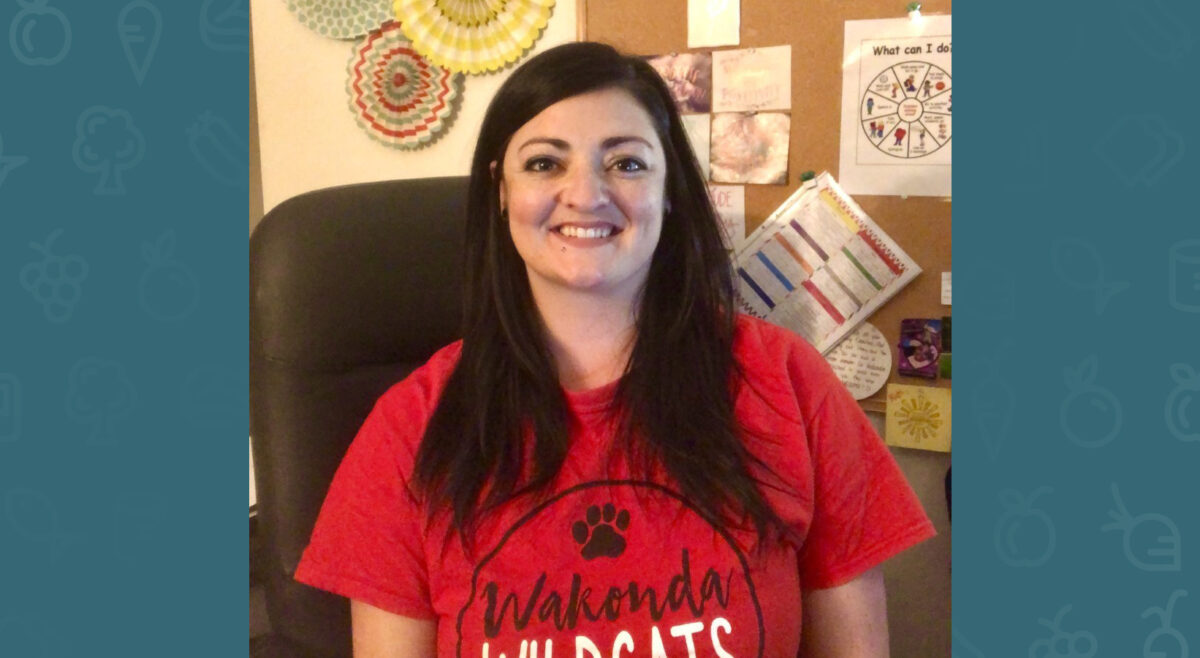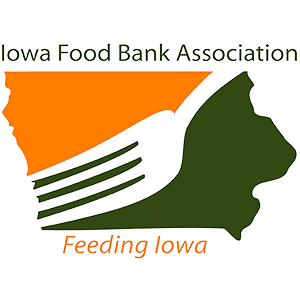The Food Bank’s School-Based Mobile Pantry Program—typically hosted in a school parking lot—helps alleviate childhood hunger by providing an accessible source of food assistance to low-income students and their families. Wakonda Elementary School in Omaha is a school-based mobile partner, and Kate Nicholson—the school’s social worker and panty coordinator—says the program has been a life saver for families.
“Especially lately, we hear a lot of people commenting on the cost of food and how much it’s gone up. They’re trying to attend multiple pantries a month because they can’t make ends meet like they used to. Families have been very verbal about how grateful they are that Wakonda has this.”
Consistent access to nutritious food is vital for children’s well-being. According to the American Academy of Pediatrics, hunger’s effect on the body directly impacts school performance. In her role, Kate has seen the effects of hunger first-hand. “One of the things we’re looking at if a child can be successful, is if they have those very basic needs met. And if they’re not, it’s silly of us to expect them to go above and beyond and learn math or try something new. We can see if a kid is getting in trouble, falling asleep in class, or refusing to do the work… we’re able to see it in a very real way.”
For students who constantly face hunger, Kate says it takes a toll on their mental health, too. “We see it more on Fridays and before a long break. We’ll have students sometimes voice the specific concern of ‘I don’t know what I’m going to eat tonight.’ You can tell if they’re getting a little anxious towards the end of the day—it’s because those bigger, basic things are looming for them.”
Kate’s passion to help her students thrive is one of the reasons why she’s volunteered for the last eight years at the mobile pantry. “As much as we try to separate our job and our life, it’s such a part of me. I care about them, and I want them to have everything they need. I’m fortunate to go home to a full fridge. These people just feel like my family.”
Kate’s parents have also become involved with the school-based mobile. “My mom and my dad both came to their first pantry about a year ago and they loved it. It was really neat seeing those two parts of my life connect and see them interacting with the kids. My dad now faithfully comes every time. I feel very grateful to have their support.”
Parents at Wakonda Elementary agree that the positive volunteers make a huge difference. “We love coming to the pantry each month and not only to get help with the food, but to see all the smiling faces of the volunteers.”
While the program has made a lasting impact on those in need, Kate realized it could also be used as a learning opportunity for other students. “I always try to include them as volunteers. I’ll pick a few of the older students and have them partner with an adult. They help greet, load food, and have that interaction. One of my favorite things is watching them and how much confidence they get out of it.”
Kate hopes it’s a lesson her students can carry with them, should they ever find themselves in need. “I hope it sparks something in them. If they need food and are feeling too proud to ask… when you’re in that position—to interact with normal everyday people coming through the line—it just reminds you, you’re not that different than anybody else.”






